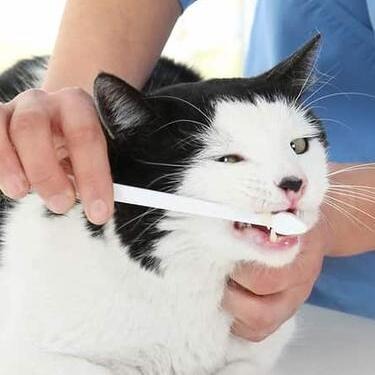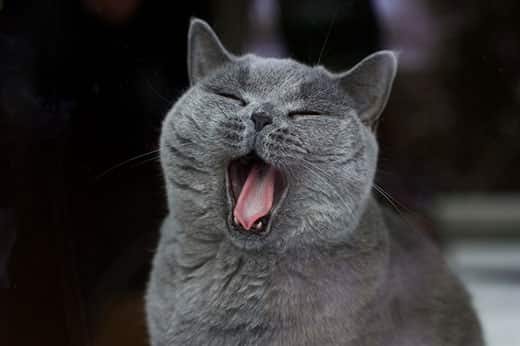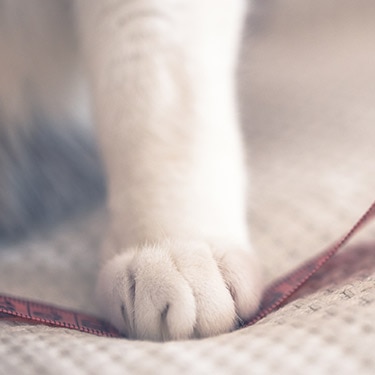
-
Find the right food for your petTake this quiz to see which food may be the best for your furry friend.Find the right food for your petTake this quiz to see which food may be the best for your furry friend.Featured products
 Puppy Lamb Meal & Brown Rice Recipe
Puppy Lamb Meal & Brown Rice RecipeVital nutrients to support 5 essential building blocks for lifelong health
Shop Now Adult Small & Mini Lamb Meal & Brown Rice Recipe Dog Food
Adult Small & Mini Lamb Meal & Brown Rice Recipe Dog FoodFor the faster metabolism of Small & Mini dogs
Shop Now Adult Chicken & Barley Recipe Dog Food
Adult Chicken & Barley Recipe Dog FoodSupports lean muscle and beautiful coat for adult dogs
Shop NowFeatured products Adult Chicken & Barley Recipe Dog Food
Adult Chicken & Barley Recipe Dog FoodSupports lean muscle and beautiful coat for adult dogs
Shop Now Adult Indoor Chicken Recipe Cat Food
Adult Indoor Chicken Recipe Cat FoodSupports energy level and beautiful fur in indoor cats
Shop Now Hill's Science Diet Adult Sensitive Stomach & Skin Chicken Recipe Dog Food
Hill's Science Diet Adult Sensitive Stomach & Skin Chicken Recipe Dog FoodHighly digestible recipe, gentle on stomachs. Nourishes skin & promotes a lustrous coat
Shop Now -
Dog
- Dog Tips & Articles
-
Health Category
- Weight
- Food & Environmental Sensitivities
- Urinary
- Digestive
- Joint
- Kidney
-
Life Stage
- Puppy Nutrition
- Adult Nutrition
- Senior Nutrition
Cat- Cat Tips & Articles
-
Health Category
- Weight
- Skin & Food Sensitivities
- Urinary
- Digestive
- Kidney
-
Life Stage
- Kitten Nutrition
- Adult Nutrition
Featured articles Virtual Vet Visits: What You Need to Know
Virtual Vet Visits: What You Need to KnowLearn the ins and outs of a televet appointment before you talk to a vet online.
Read More My Pet Ate a Lizard — What Should I Do?
My Pet Ate a Lizard — What Should I Do?Learn what to do if your pet eats a lizard, including whether they can be toxic and symptoms to keep an eye on when they've swallowed one.
Read More Pet Dental Health: What Happens During a Deep Teeth Cleaning?
Pet Dental Health: What Happens During a Deep Teeth Cleaning?Learn about veterinary dental care for your pet, including deep teeth cleaning procedures, which can help your dog or cat maintain proper dental health.
Read More -


Bad breath — it happens to the best of us, including our beloved feline companions. Although many cases of our morning breath can be solved with a morning brush routine, cat bad breath often indicates a more serious medical problem, with both oral causes or systemic ones.
Why Does My Cat Have Bad Breath?
Oral Causes
According to International Cat Care, 85% of cats have some form of dental disease, and it's no wonder why. A cat's teeth and gums (aka gingival tissue) have naturally occurring bacteria. As these germs multiply and aren't removed via brushing, they can develop a bacteria plaque film on the teeth; this film hardens through natural minerals in your cat's saliva and becomes tartar. The bacteria in your cat's mouth that are not removed release smelly compounds after they breakdown leftover food particles. Not only does this cause cat bad breath, but mouth bacteria can travel via the blood to various organs, where they can cause infections throughout the body, often resulting in heart and kidney disease. The accumulation of tartar also forces the gums down, causing them to recede, which loosens the roots of the teeth. Eventually, those loose teeth fall out. This all makes for one stinky and painful kitty mouth.
Cats also can expose their teeth and gums to foreign objects — from bugs they catch and eat to nonfood objects that can cause injury or oral trauma. In addition to these sources, cats are known for their frequent hairballs and vomiting. Imagine how foul your breath would become if you couldn't clean your mouth after being sick and you begin to understand why cat bad breath develops.
Further oral causes of halitosis (the scientific name for bad breath) in cats include oral tumors, abscesses from dead teeth and inflammatory gum conditions.
Systemic Causes
The source of cat bad breath can't always be traced to the mouth. Some of the more common systemic causes of bad breath in cats are serious medical conditions that necessitate prompt medical treatment.
- Chronic kidney disease: Kidney disease affects approximately one out of every three cats, reported Pet Health Network. As kidney function decreases, waste products, such as urea and ammonia, build up in the cat's blood. This may cause the cat's breath to smell like urine or ammonia.
- Diabetes mellitus: Diabetes mellitus is a disease of the pancreas. Simply put, diabetes mellitus is a failure of certain pancreatic cells to regulate blood sugar. If your cat's breath stinks like a fruity odor, this is a sign of ketoacidosis, which may occur in diabetes. It's a potentially life-threatening condition.
- Gastrointestinal trouble: Breath that smells like feces can occur with continued vomiting, especially when there is a bowel obstruction. Bowel obstructions are a medical emergency.
As you can see, bad breath in cats is anything but a frivolous and smelly inconvenience. While bad breath in people can be related to nonserious causes, such as eating garlicky food, bad breath in cats is more often a longstanding and serious condition. Luckily, there is often a solution.


Tasty Tips
Getting Rid of Bad Breath: Home Remedies & Professional Tips
The goal of treatment is simple enough: establish cat breath that is free from offensive odors. If you are starting with a kitten with a healthy mouth, implementing a plan of good oral hygiene will be fairly simple, provided you are consistent and committed. Brushing your cat's teeth is another effective way to prevent the buildup of tartar. You should use toothpaste made especially for cats, which is available at pet supply stores or your vet's office. You should also purchase a special cat toothbrush to make this task easier for your cat — and you. Brushing should be done several times weekly at a minimum, and ideally, daily. This can be a challenge, especially in the learning phase. Stick with it and most cats will learn to tolerate it as part of their daily routine and may even enjoy the attention from you.
You should also schedule a professional cat teeth cleaning with your vet at least once a year. This procedure will require them to put your cat under anesthesia — this isn't just to make it easier for the vet to more easily navigate your cat's teeth while they are asleep, but teeth cleanings for pets often requires more extensive cleaning that a regular toothbrush just can't reach. This often includes removal of hard to reach plaque and tartar that may form underneath the gum line. Your vet may also recommend X-rays to look for broken or cracked teeth, which can be common among cats.

If your cat has periodontal, or gum disease, your first goal is to treat the oral cause of the bad breath. A complete oral exam under anesthesia is necessary to diagnose the cause and the extent, as well as correct it.
If systemic disease is the cause of halitosis, your veterinarian will likely need to perform diagnostics to determine the cause. Once the cause is diagnosed and controlled, a home dental care routine should be established.
There are oral care products and even foods to fight your cat's bad breath and dental disease. Feeding your cat a vet-approved dental care cat food with scientifically proven tartar-reducing ingredients is a simple and effective option. Special additives and uniquely shaped kibble have been shown to greatly reduce plaque formation and tartar buildup, helping to maintain fresh breath.
Remember, a neutral-smelling breath is a sign of a healthy mouth and a healthy cat. The World Small Animal Veterinary Association reported that dental and oral diseases are by far the most common problem facing our pets today. Maintain your cat's oral health to help maintain their overall health.


Dr. Laci Schaible is a small animal veterinarian, veterinary journalist, and a thought leader in the industry. She received her Doctor of Veterinary Medicine from Texas A&M University and her Masters in Legal Studies from Wake Forest University.
Related products

Highly digestible recipe, gentle on stomachs. Nourishes skin & promotes a lustrous coat

Supports lean muscle and beautiful coat for adult dogs

Supports energy level and beautiful fur in indoor cats

Vital nutrients to support 5 essential building blocks for lifelong health
Related articles

How do you get a cat to lose weight? Learn all about cat foods for weight loss, including how to choose weight control cat food and exercise tips.

What is the best food for an overweight cat? Learn all about weight control food for cats, including what's in it and how it works.

Discover how to identify cat sensitive skin and what you can do to help your cat thrive from head to paw.

What is the best food for an overweight cat? Learn all about weight control food for cats, including what's in it and how it works.

Put your cat on a diet without them knowing
Our low calorie formula helps you control your cat's weight. It's packed with high-quality protein for building lean muscles, and made with purposeful ingredients for a flavorful, nutritious meal. Clinically proven antioxidants, Vitamin C+E, help promote a healthy immune system.
Put your cat on a diet without them knowing
Our low calorie formula helps you control your cat's weight. It's packed with high-quality protein for building lean muscles, and made with purposeful ingredients for a flavorful, nutritious meal. Clinically proven antioxidants, Vitamin C+E, help promote a healthy immune system.

